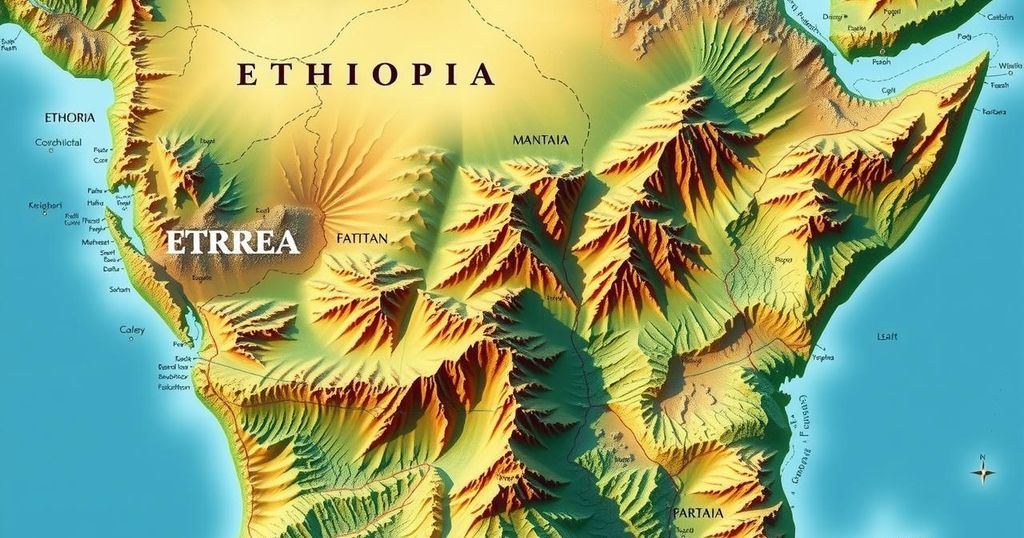Internal Tensions in TPLF Heighten Risk of Ethiopia-Eritrea Conflict

Internal divisions within the TPLF have increased the likelihood of renewed conflict in Ethiopia, involving Eritrea. Key figures have accused rival factions of collusion with Eritrea aimed at destabilizing Tigray’s interim administration. Analysts warn that the potential for broader regional conflict could arise if tensions persist, affecting neighboring nations and exacerbating humanitarian crises.
Recent internal strife within the Tigray People’s Liberation Front (TPLF) poses a significant risk of reigniting conflict in Ethiopia, potentially spilling over into Eritrea. A dissident faction’s takeover of a major radio station in Mekelle and the seizure of Adigrat has been termed an “outright coup.” Getachew Reda, leader of Tigray’s interim administration, has accused the rival faction, led by TPLF chairman Debretsion Gebremichael, of colluding with Eritrea to escalate violence and oust him.
The TPLF, historically an opponent of the Eritrean government, has faced turmoil since a peace agreement ended a two-year civil war that killed approximately 600,000 people. Eritrea’s President Isaias Afwerki has remained hostile towards Tigray, seeking to dismantle the TPLF due to its exclusion from the 2022 peace deal. Eritrean troops continue to occupy disputed border territories from the recent conflict despite international pressures to withdraw.
There is growing concern that renewed military mobilization from Ethiopia, Eritrea, and TPLF factions may indicate an approaching conflict. Analysts Payton Knopf and Alexander Rondos have warned that an escalation could draw in Sudan, which previously supported TPLF forces during the civil war. The potential for further instability could affect Chad and create a volatile corridor between the Sahel region and the Red Sea.
In addition to domestic tensions, Ethiopia’s external relations are strained as it seeks to regain access to the Red Sea, severely impacted since Eritrea’s independence in 1993. Current discussions involving Ethiopia and Somalia regarding future sea access could complicate the regional landscape, particularly amid rising tensions with Eritrea.
Unfortunately, humanitarian concerns persist as millions of Ethiopians remain reliant on aid, particularly in Tigray, where access has been severely limited due to internal conflicts. Ethiopia’s struggle with refugee influxes from neighboring conflict zones exacerbates the already difficult humanitarian situation, highlighting the urgent need for stability in the region.
The power struggles within the TPLF and continuing tensions with Eritrea pose a grave threat to peace in the Horn of Africa. The situation necessitates urgent attention from international stakeholders to prevent a resurgence of the devastating conflict experienced in recent years. The humanitarian implications of continued instability further underscore the urgency of diplomatic efforts to achieve lasting resolutions in the region.
Original Source: foreignpolicy.com







